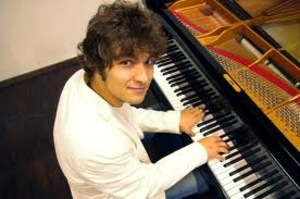24 PRELUDES OF S. RACHMANINOFF AFTER L. GENIUŠAS 0
In brief: J. S. Bach‘s ‘The Well Tempered Clavier’, sonatas of W. A. Mozart and L. van Beethoven are only a small part of piano solo pieces that extremely interest professional pianists. Many of them cannot do without opuses of the famous tandem of Romanticism: the gentle F. Chopin and the extrovert F. Liszt. They are performed by the young pianist Lukas Geniušas too. The audience could enjoy his performance at Kaunas State Philharmonic on the 17th of January, when L. Geniušas played S. Rachmaninoff‘s preludes for piano (op. 3, No. 2; op.23 No. 1-10 and op. 32, No. 1-13).
Sergey Rachmaninoff was a Russian pianist and composer, still a romanticist but already stepped into the 20th century. S. Rachmaninoff was considered an expressive composer and talented pianist – one of the best of his time. Managing opuses of this composer is a challenge for many musicians; not to mention the whole series of them, as it was done by L. Geniušas.
Playing many pieces in one breath is rather difficult technically and physically: a lot of concentration during rehearsals and concerts is required. Great concentration and stamina could be called characteristic features of this performer who merged into S. Rachmaninoff‘s music and took the listeners with him. The audience was listening breathlessly to L. Geniušas‘s performance from the first accord to the last one. S. Rachmaninoff‘s music is not easy; it is full of quite complex musical structural textures; there are no sweet melodies favouring the heart, so the series became a challenge not only for the performer but also the listeners.
L. Geniušas proved his technical and artistic abilities by winning numerous prizes at international competitions. Precise passages, firm accords, dense facture – all that is amazing, as well as artistic maturity of the performer. Despite his young age, he refuses to interpret compositions superficially and tries to perform them as little musical dramas. L. Geniušas succeeded to find an original, philosophical and rather reserved interpretation of Rachmaninoff‘s music. He avoided a rebellious sound and focused on the psychology of music rather than external demonstration of the technique.
After two hours of S. Rachmaninoff‘s music the audience stood up, applauded and demanded to repeat the pieces. Further performances and impressive concert programmes of L. Geniušas will be surely awaited at concert halls.

